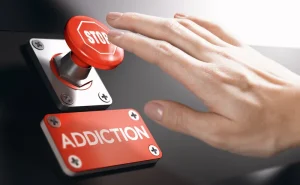
An alcohol allergy can occur when a person with an alcohol allergy comes into contact with alcohol, which is also known as ethanol. In a few cases, alcohol intolerance can be a sign of a more serious problem. If you think you have it, talk with your doctor and find out what’s causing it.
Why Do I Sneeze When I Drink Alcohol?
An allergist is a special type of doctor that focuses on allergic conditions. The symptoms of histamine intolerance are similar to an allergic reaction. For example, potential symptoms include red and itchy skin, nasal congestion, shortness of breath, abdominal sneezing after drinking alcohol pain, and diarrhea. It’s possible to develop an alcohol allergy at any point in your life. Sudden onset of symptoms may also be caused by a newly developed intolerance. In rare cases, pain after drinking alcohol might be a sign that you have Hodgkin’s lymphoma.
- If you have an allergy, your immune system over-reacts to contact with a trigger or “allergen.” If you have an alcohol allergy, your immune system treats alcohol as a threat.
- When this happens, your immune system overreacts because it sees the allergen as foreign.
- If you’re allergic to another ingredient contained in certain alcoholic products, switching to a different drink might be an option.
- You may develop many symptoms, but you won’t have an anaphylactic reaction.
- The only way to prevent these uncomfortable reactions is to avoid alcohol.
Why is drinking alchohol suddenly making me sick?
- IgE is an antibody that suggests that a person may have allergies.
- This reflex is why so many people sneeze when they look at the sun.
- The only way to avoid beer allergy symptoms is to avoid drinking beer.
- However, allergies to certain ingredients in alcohol can sometimes resemble alcohol intolerance.
- Your skin’s reaction can help them learn if you have an allergy.
- For example, potential symptoms include red and itchy skin, nasal congestion, shortness of breath, abdominal pain, and diarrhea.
You can also manage the symptoms of gustatory rhinitis with over-the-counter decongestants, such as pseudoephedrine (Sudafed). When you feel the urge to sneeze, it’s best to let it out. These symptoms could mean you have severe allergies or some type of infection.
Can I Drink Alcohol With Allergy Medications like Benadryl, Claritin, or Zyrtec?

The symptoms are like those of hay fever, also called allergic rhinitis. If you might have a beer allergy, a provider would use common ingredients in beer (e.g., wheat and barley) for the test. If you are allergic to these ingredients, your skin will itch or you’ll get a rash during the test. Anaphylaxis is a rare but severe allergic reaction possible with any allergy, including beer or its ingredients. The many ingredients in beer make an allergy to one of the specific ingredients more likely.

If you have alcohol intolerance, your digestive system doesn’t process alcohol properly. You might also react to certain alcoholic beverages if you have a histamine or sulfites intolerance. In very rare cases, reactions to alcohol may be a sign of Hodgkin’s lymphoma. These substances can make your blood vessels dilate, which causes symptoms of alcohol intolerance.

- When eating out, they should make a point of asking about ingredients to make sure they do not contain alcohol, because even a small amount can cause a reaction.
- Also, if your symptoms seem to be linked to an allergy or a medication you’re taking, see your doctor.
- Histamine is a chemical that occurs naturally in your body.
- It is best for people who have gluten intolerance to avoid beer, unless it is gluten-free.
Why Do I Sneeze After Eating?
- The many ingredients in beer make an allergy to one of the specific ingredients more likely.
- It can be a long-term problem, and it has no clear cause.
- They can help determine if you’re allergic to a specific ingredient in the beer.
- Hodgkin lymphoma is a blood cancer that can affect a person’s lymphatic system.
- If the allergic reaction is more severe, people may require epinephrine, also known as an EpiPen.
- About a third of those with East Asian heritage have it.